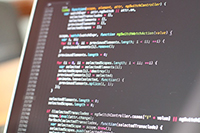 People tend to treat “hacker” and “cyber-criminal” as interchangeable terms. The truth is that legal hacking isn’t the exception to the rule, illegal hacking is the exception. All hacking really consists of is cracking a system, and not all systems are illegal to crack. If you hack a video game without infringing on copyright, the worst that can happen is you might have your online multiplayer privileges revoked. If you hack your phone so that you can use homebrewed apps, but you don’t tamper with the firmware, then the worst you’ve done is voided your warranty.
People tend to treat “hacker” and “cyber-criminal” as interchangeable terms. The truth is that legal hacking isn’t the exception to the rule, illegal hacking is the exception. All hacking really consists of is cracking a system, and not all systems are illegal to crack. If you hack a video game without infringing on copyright, the worst that can happen is you might have your online multiplayer privileges revoked. If you hack your phone so that you can use homebrewed apps, but you don’t tamper with the firmware, then the worst you’ve done is voided your warranty.
Computer crime usually doesn’t even involve any sort of special knowledge of coding. Most identity theft has to do with credit cards being physically stolen and password-guessing. Chances are if you’re the kind of person who devotes years of your life to learning how to code well enough to break into a bank, you have so many job offers coming at you that you wouldn’t even put any serious consideration into cyber-theft.
The question remains: At what point does hacking become illegal? Can you crack into a company’s private data just to have a looksie, do you have to actually leak information before you’ve broken any laws? Are you risking jailtime by taking just one guess at a bank account PIN?
The Computer Misuse Act deems it an offense to hack into a system belonging to someone else, or to send them a virus that will allow you to obtain private information. There are exceptions to this, of course. Many websites like Google actually offer bounties for anyone who can crack into their system, as the assistance of white-hat hackers can help to make their system stronger against legitimate threats. This said, you’ll want to make sure that a website’s owners want it to be hacked before you take a shot at it. Some companies won’t take it lightly and may pursue legal action against a benign hacker.
The short answer is that, while hacking itself isn’t necessarily illegal, the act of hacking is punishable when it’s attached to a more serious crime, or the potential to commit a more serious crime. If you’re hacking so as to break through copyright protection, or if you’re hacking into a system where private data is held and there isn’t an open invitation out there to see if you can do it, then you could be looking at serious consequences, and as with any misdemeanor or felony, an unsuccessful attempt can be punished just as easily as a successful attempt.





